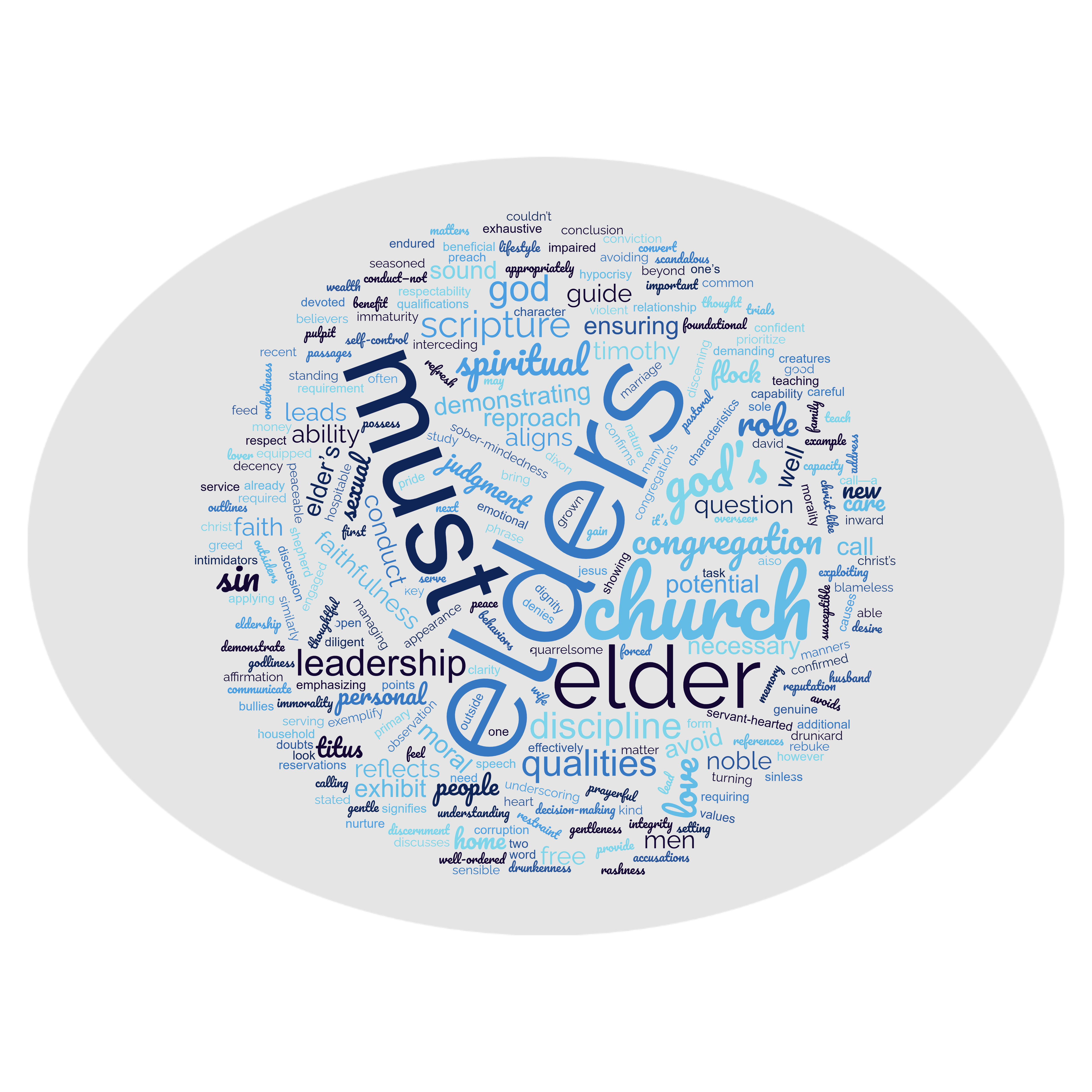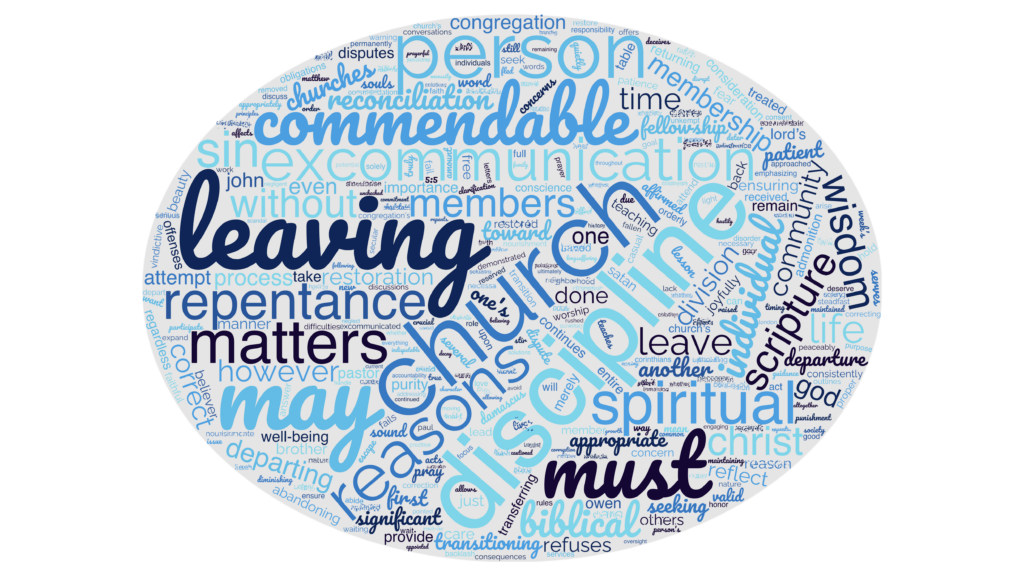Qualifications for an Elder

A common and important question is: What should a congregation look for in a potential elder? While many may already have some understanding, it’s beneficial to refresh our memory by turning to Scripture. Two primary passages guide us in this matter: 1 Timothy 3:1-7 and Titus 1:5-9.
Scripture References
- 1 Timothy 3:1-7 outlines the characteristics required of an overseer (elder), emphasizing the noble nature of this task and the qualities necessary for leadership.
- Titus 1:5-9 similarly discusses the spiritual and moral qualifications for elders, underscoring the need for godliness and discipline.
The Call to Eldership
An elder must first feel an inward call—a personal conviction of God’s calling. However, this is not the sole requirement; the church confirms or denies this call, ensuring it aligns with Scripture and the congregation’s discernment.
Key Points:
- An elder should not be forced into the role.
- There must be a genuine desire to serve God in this capacity.
Character and Conduct
Above Reproach
An elder must be blameless in conduct—not sinless, but free from scandalous sin. David Dixon stated:
“It is necessary that elders should be spiritual men … men of God, at peace with Him, new creatures in Christ Jesus.“
The congregation should be confident in the elder’s integrity, with no doubts or reservations about their moral standing.
Faithfulness in Marriage
The phrase “husband of one wife” signifies sexual morality. Elders must exhibit faithfulness and avoid any form of sexual immorality.
Sound Judgment
Elders must demonstrate:
- Sober-mindedness: Thoughtful, careful, and free from rashness.
- Self-control: Sensible decision-making and emotional discipline.
- Respectability: Decency, orderliness, and good manners.
Hospitable
Elders should possess a love for God’s people, showing an open heart and home. Their service reflects Christ’s care for His flock.
Able to Teach
Elders must effectively communicate God’s Word, applying it to benefit the congregation. This ability is confirmed by the church through observation and affirmation.
Lifestyle and Leadership
Not a Drunkard
Drunkenness leads to impaired judgment and often causes sin. Elders must exhibit restraint and avoid behaviors that bring reproach to the church.
Gentle, Not Violent or Quarrelsome
Elders should:
- Be peaceable and kind, not bullies or intimidators.
- Rebuke sin appropriately with gentleness and respect.
Not a Lover of Money
Greed leads to corruption. Elders must prioritize serving God’s people over personal gain, avoiding any appearance of exploiting their role for wealth.
Managing One’s Household
An elder must lead their family well, demonstrating the ability to guide, nurture, and discipline with dignity. A well-ordered home reflects their capability to shepherd the church.
Not a Recent Convert
New believers are susceptible to pride and spiritual immaturity. Elders must be seasoned in faith, having endured trials and grown in their relationship with God.
Well Thought of by Outsiders
An elder’s reputation outside the church matters, ensuring their conduct aligns with the values they preach and avoids accusations of hypocrisy.
Additional Qualities
While not exhaustive, elders should also be:
- Prayerful: Devoted to interceding for the church.
- Diligent in Study: Equipped to feed the flock through sound teaching.
- Engaged in Pastoral Care: Demonstrating love beyond the pulpit.
- Servant-hearted: Setting an example of faith, speech, and love.
Conclusion
The role of an elder is both noble and demanding, requiring qualities that exemplify Christ-like leadership. While I couldn’t address the next question, this foundational discussion should provide clarity for discerning potential elders in the church.
To hear the full audio of this article, visit “What Should a Congregation Look for in an Elder?”.



Leave a Reply